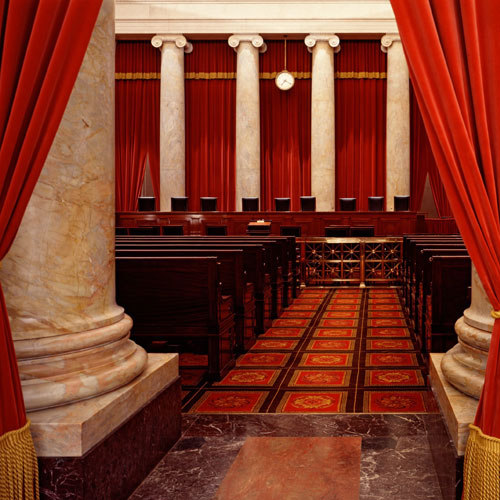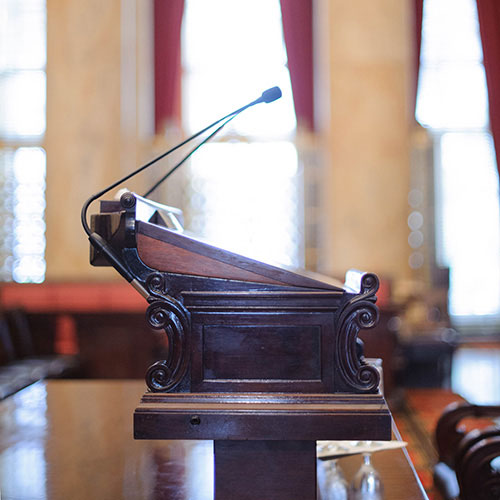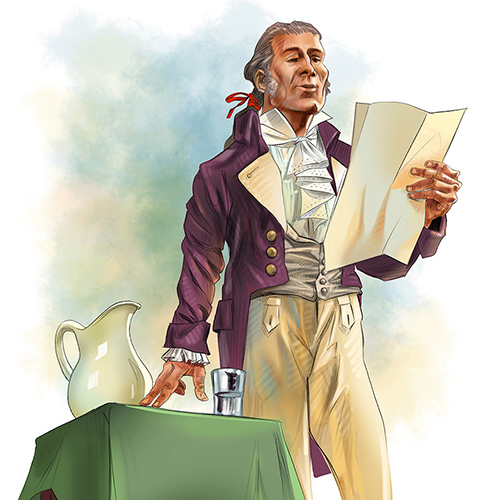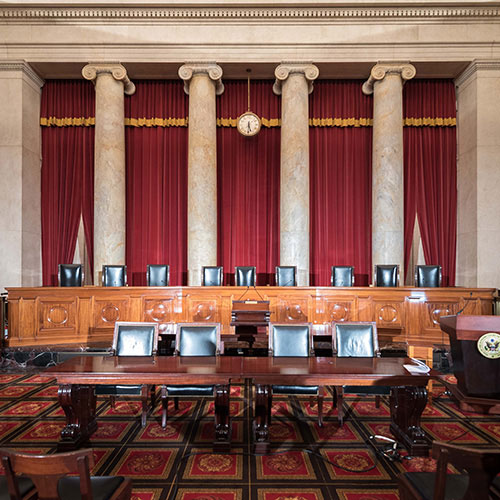Chattanooga Times Free Press
Sam Still
Portraits of Black attorneys Noah Parden and Styles Hutchins frame the entrance to the third floor courtroom at the federal courthouse on Georgia Avenue. And now, just steps away, five panels chronicle not just their history but also the history of one of Chattanooga’s most infamous legal cases.
Chattanooga-area students created the panels as their capstone project for the Supreme Court and My Hometown civics camp held in the summer. The camp is a joint venture of the U.S. District Court for the Eastern District of Tennessee, the Supreme Court Historical Society and the University of Tennessee at Chattanooga.
The historical society’s hometown program “engages high school students in an intensive study of the process and substance of cases decided by the Supreme Court of the United States” by using “a local case that reached the Supreme Court to teach students in a personalized way about the United States court system,” according to a news release from the district court.
As a result of the program, the students are more knowledgeable and informed citizens, Senior District Judge Curtis Collier said at a Thursday ceremony to unveil the students’ work.
“In years to come, they will take their place as leaders in this great land of ours,” Collier said of the students during the ceremony. “And with them as leaders, our future as a nation is in good hands.”
During the course of the summer camp, 20 local high school students and five college student mentors studied the cases of Ed Johnson and United States v. Shipp. They spoke with judges, attorneys, professors and others, analyzing media coverage and touring historical sites, the news release said. The hallmark of the program — that it focuses on a local case — makes learning the history feel more real and makes participants feel more connected to their community, the historical society’s director of civics education, Nicole Maffei, said in an interview.
“They could stand where some of these things occurred. They could see the grave of Ed Johnson, and so it’s not just text on a page,” Maffei said. “It’s real things that happened to real people in their neighborhood, and I just think it’s more impactful.”
Ed Johnson was a Black man wrongfully convicted of raping a white woman in 1906. He was sentenced to death, and his lawyers, Parden and Hutchins, sought appeals at the local and state level only to be denied. The case went all the way to the U.S. Supreme Court, where Associate Justice John Marshall Harlan issued a stay of execution so the Supreme Court could hear the case.
Despite the stay of execution, a mob stormed the county jail where Johnson was held, grabbed him and took him to the Walnut Street Bridge, where they executed him — first by attempting to hang him and then by shooting him. Enraged by the mob’s defiance of the stay of execution, the Supreme Court charged Hamilton County Sheriff Joseph Shipp and five other Chattanoogans with contempt of court for their role in the lynching of Ed Johnson, ultimately sentencing them to between 60 and 90 days in prison.
The student-created panels guide viewers through the history of this case, from the racial tensions of Chattanooga around the turn of the 20th century through Johnson’s trial, appeals and lynching and through the impact of United States v. Shipp.
The summer civics camp gave Leah Flatford, a homeschool student through Abeka Academy, a new perspective on Chattanooga, she said in an interview.
“To be able to know and to have gone to where it happened,” she said of studying the Ed Johnson case, has made her relationship to the city more personal.
For McKinna Wiles, a student at Notre Dame High School, the summer camp made the education stick more than it would have in a regular classroom setting, she said in an interview. She is coming away from the program feeling more knowledgeable and aware, she said.
Johnny Brafford, a Bradley Central High School student, said in an interview that he has known for most of his life that he wants to be a lawyer. In his pursuit of this career path, Brafford has had the opportunity to speak with others who wanted to pursue law but decided against it once they got to law school, he said. This made him anxious, wondering if he too would decide to abandon a law career, but going through the Supreme Court and My Hometown program secured his love for law, he said.
“It has shown me that this is definitely, definitely what I want to do with my life,” Brafford said.
The Supreme Court and My Hometown program will return to Chattanooga in 2026.




